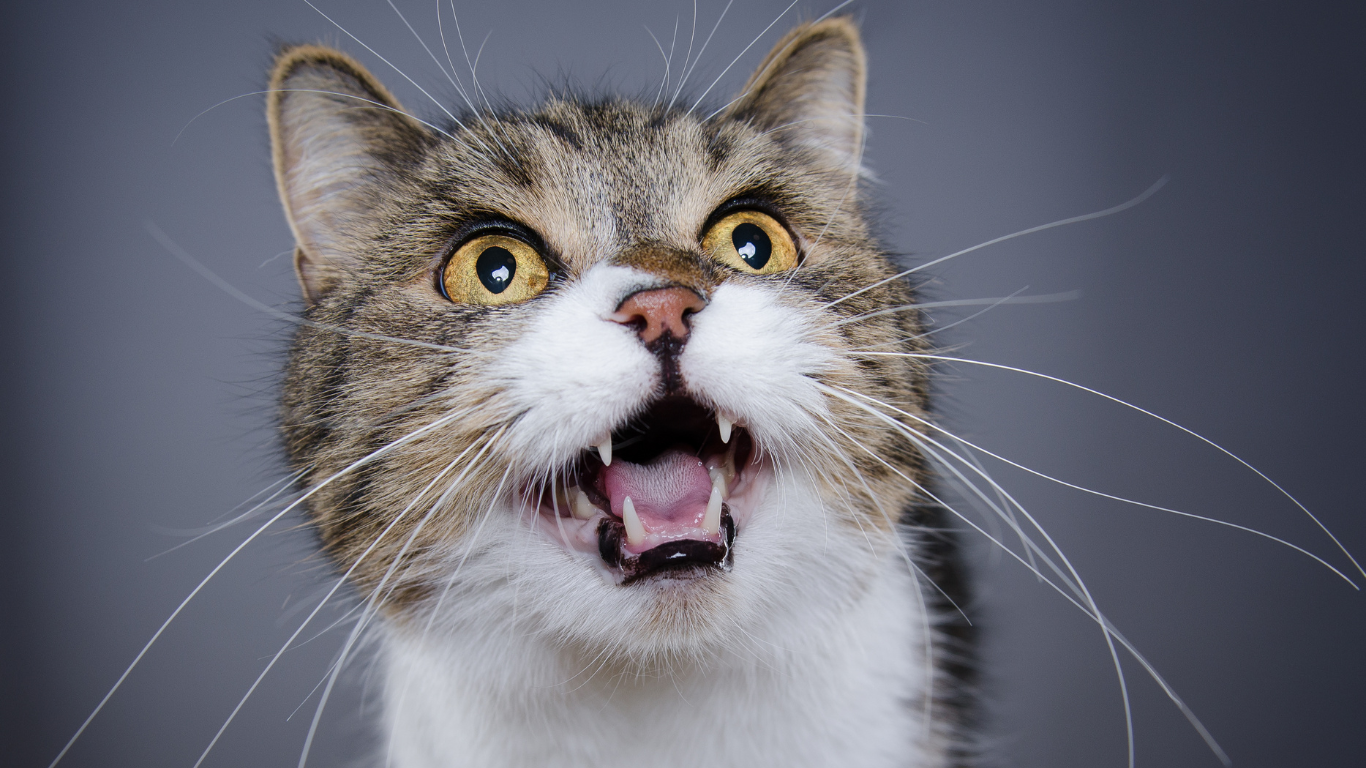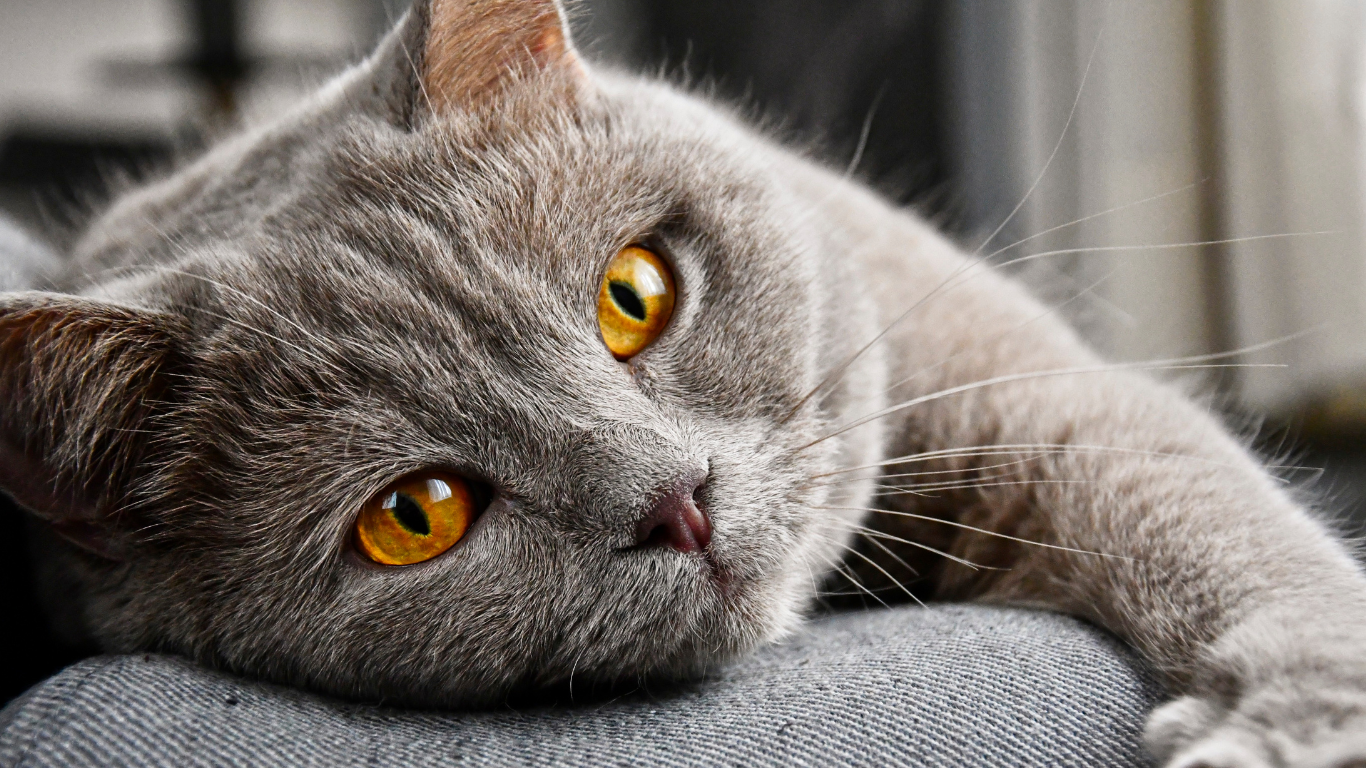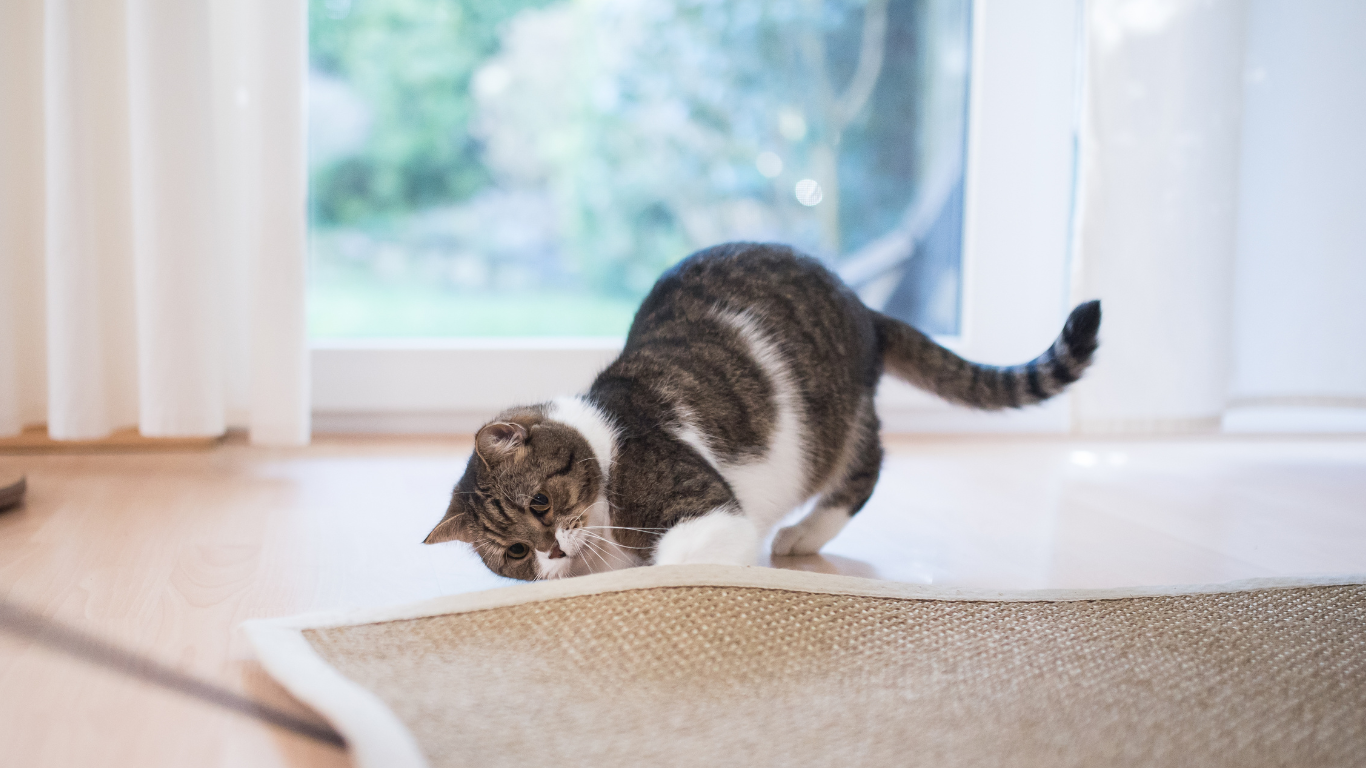Cats have their own way of communicating. This magazine series is about interpreting cat behavior. Whether it's the position of their tails, the shape of their pupils or their purring - our tigers communicate a lot with us and we want to understand them better. The second part is about meowing.
If you have a tiger at home, you are probably familiar with the characteristic meowing, which is sometimes gentle and quiet, sometimes louder and can even become a scream. But why do cats meow and what are they trying to tell us?
Meowing as an expression of needs
Cats usually meow to let us know that they want or need something. There are a variety of meow sounds, and each type of meow can convey a specific message.
hunger
If your kitty meows in front of her food bowl, it is often an indication that she is hungry. Cats often meow in a long and repetitive manner. It is advisable to pay attention to fixed meal times to avoid the cat constantly meowing just because you are in the kitchen. Regular meal times can give the animal clear orientation and security.
greeting
Some cats meow in greeting. As soon as we come through the door, our tigers come running and meowing. This shows that your tiger noticed that you were gone and is happy that you are back. In return, you can pet him a little and say kind words to him.
satisfaction
A quiet meow when your cat snuggles up to you could mean he's comfortable and looking for affection. This is often combined with purring.
Attention
Cats also use their meowing to attract attention - whether because they want to play, want to be petted or are simply looking for company. If you lie in bed at night and the bedroom door is closed, you will probably often hear meowing noises. The cat is active and may be bored, so it meows. Of course, this can also be the case during the day. Playing or, if necessary, going outside can keep your tiger occupied - and the meowing will decrease.
Pains
A high-pitched, intense meow can signal discomfort or pain. In certain situations, such as when cleaning or going to the toilet, cats meow to indicate something unpleasant that they are feeling. If the pain is severe or persistent, cats' meowing may even last longer.
stress
When cats feel stressed, they also meow more than usual. Maybe there has just been a change of residence? Or has a new pet or baby moved in? All of these can be stress factors for your tiger. When making changes like this, you should make sure that everything goes as smoothly as possible for your cat.
View of prey
Cats are hunters. If they see prey from the window that they can't reach, cats may start to meow quietly after a while. They often chatter. We don't know what that means exactly. It could be frustration because they can't get to the prey, or it could be communication with the prey and they are trying to attract it.
Rolliness
Sometimes cats meow more than usual for hormonal reasons. They are also very restless. By meowing loudly, they signal to other cats in the area that they are ready to mate. In female cats that are in heat, this is accompanied by increased running back and forth, rubbing their heads on objects, rolling on the floor and increased marking. Male cats in heat become particularly restless when they smell the smell of other cats - even if they are far away. They then meow, especially at night.
The meowing of kittens
Kittens meow to get their mother's attention. Mother cats recognize the different tones of their kittens and know when to feed or calm them. Interestingly, some cats continue this behavior into adulthood, once they have learned that meowing is an effective way to ask their humans for help.
Adjusting the meow
Cats are intelligent animals and can adapt their meowing sounds to the reactions of their humans. If they find that certain tones or volumes get a better response, they are likely to stick with them. This means that cats can also use meowing as a form of manipulation to better assert their needs.
Possible reasons for excessive meowing
Sometimes cats meow to a greater extent. This could indicate various reasons. It could be that they have health problems, are feeling stressed, or something else is wrong. In such cases, it is advisable to see a veterinarian to make sure there are no serious problems.
How you should react to your cat's meowing
Meowing plays an important role in the relationship between humans and cats. The way we react to meowing also influences the behavior of our tigers.
To improve communication with your cat, it is helpful to be sensitive to its needs and to correctly interpret its non-verbal signals. Spend time with her to build a strong bond and learn to understand her individual meow tones. If you feel like your cat is meowing unusually much or exhibiting behavioral changes, don't hesitate to see a veterinarian to make sure he's healthy and happy.
All kitties will find this snack to scream: The Mmmh Mmmh snack is made from 100% salmon fillet and tastes delicious. Meow!











